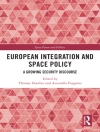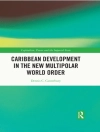Composed by international researchers, the Handbook of Narrative Inquiry: Mapping a Methodology is the first comprehensive and interdisciplinary overview of the developing methodology of narrative inquiry. The Handbook outlines the historical development and philosophical underpinnings of narrative inquiry as well as describes different forms of narrative inquiry. This one-of-a-kind volume offers an emerging map of the field and encourages further dialogue, discussion, and experimentation as the field continues to develop.
Key Features:
Offers coverage of various disciplines and viewpoints from around the world: Leading international contributors draw upon narrative inquiry as conceptualized in Anthropology, Sociology, Psychology, and Philosophy.
Illustrates the range of forms of narrative inquiry: Both conceptual and practical in-depth descriptions of narrative inquiry are presented.
Portrays how narrative inquiry is used in research in different professional fields: Particular attention is paid to representational issues, ethical issues, and some of the complexities of narrative inquiry with indigenous and cross-cultural participants as well as child participants.
Intended Audience:
The Handbook of Narrative Inquiry is a must have resource for narrative methodologists and students of narrative inquiry across the social sciences. Individuals in the fields of Nursing, Psychology, Anthropology, Education, Social Work, Sociology, Organizational Studies, and Health research will be particularly well served by this masterful work.
Table des matières
International Advisory Board Members
Preface
Acknowledgments
PART I – Situating Narrative Inquiry – D. Jean Clandinin
CHAPTER 1 – Locating narrative inquiry historically: Thematics in the turn to narrative – Stefinee Pinnegar & J. Gary Daynes
CHAPTER 2 – Mapping a landscape of narrative inquiry: Borderland spaces and tensions – D. Jean Clandinin & Jerry Rosiek
PART II – Starting With Telling Stories – Janice Huber
CHAPTER 3 – Narrative inquiry in archival work – Barbara Morgan-Fleming, Sandra Riegle, & Wesley Fryer
CHAPTER 4 – The unsayable, Lacanian psychoanalysis, and the art of narrative interviewing – Annie G. Rogers
CHAPTER 5 – Autobiographical understanding and narrative inquiry – Mark Freeman
CHAPTER 6 – Talking to learn: The critical role of conversation in narrative inquiry – Sandra Hollingsworth & Mary Dybdahl
CHAPTER 7 – Charting the life story′s path: Narrative identity across the life span – Jenna Baddeley & Jefferson A. Singer
CHAPTER 8 – The language of arts in a narrative inquiry landscape – Dilma Maria de Mello
CHAPTER 9 – The life story interview as a bridge in narrative inquiry – Robert Atkinson
PART III – Starting With Living Stories – Stefinee Pinnegar
CHAPTER 10 – Relational reverberations: Shaping and reshaping narrative inquiries in the midst of storied lives and contexts – Cheryl J. Craig & Janice Huber
CHAPTER 11 – Composing a visual narrative inquiry – Hedy Bach
CHAPTER 12 – My story is my living educational theory – Jean Mc Niff
CHAPTER 13 – From Wilda to Disney: Living stories in family and organization research – David M. Boje
PART IV – Narrative Inquiry in the Professions – Barbara Morgan-Fleming
CHAPTER 14 – Studying teachers′ lives and experience: Narrative inquiry into K-12 teaching – Freema Elbaz-Luwisch
CHAPTER 15 – Narrative inquiry in and about organizations – Barbara Czarniawski
CHAPTER 16 – Acted narratives: From storytelling to emergent dramas – Cheryl Mattingly
CHAPTER 17 – Narrative inquiry in the psychotherapy professions: A critical review – Catherine Kohler Riessman & Jane Speedy
PART V – Complexities in Narrative Inquiry – Janice Huber and Stefinee Pinnegar
CHAPTER 18 – Understanding young children′s personal narratives: What I have learned from young children?s sharing time narratives in a Taiwanese kindergarten classroom – Min-Ling Tsai
CHAPTER 19 – Exploring cross-cultural boundaries – Molly Andrews
CHAPTER 20 – Mo′olelo: On culturally relevant story making from an indigenous perspective – Maenette K. P. Benham
PART VI -Narrating Persisting Issues in Narrative Inquiry – Barbara Morgan-Fleming
CHAPTER 21 – The ethical attitude in narrative research: Principles and practicalities – Ruthellen Josselson
CHAPTER 22 – In-forming re-presentations – Margot Ely
PART VII – Future Possibilities – D. Jean Clandinin
CHAPTER 23 – Narrative inquiry: What possible future influence on policy and practice? – Nona Lyons
CHAPTER 24 – Looking ahead: Conversations with Elliot Mishler, Don Polkinghorne, and Amia Lieblich – D. Jean Clandinin & M. Shaun Murphy
Author Index
Subject Index
About the Editor
About the Contributors
A propos de l’auteur
D. Jean Clandinin, Ph D, is a professor and founding director of the Centre for Research for Teacher Education and Development at the University of Alberta. She is the author of many books and articles about teacher knowledge, narrative inquiry, and curriculum studies. Her recent studies are narrative inquiries into the experiences of youth who leave school early, early career teacher attrition, the experiences of youth and families of Aboriginal heritage, and the experiences of the professional learning of school administrators.












